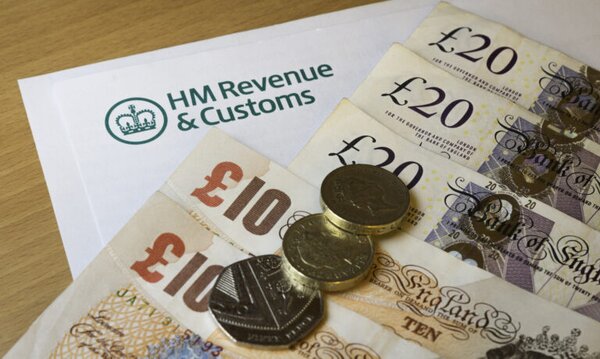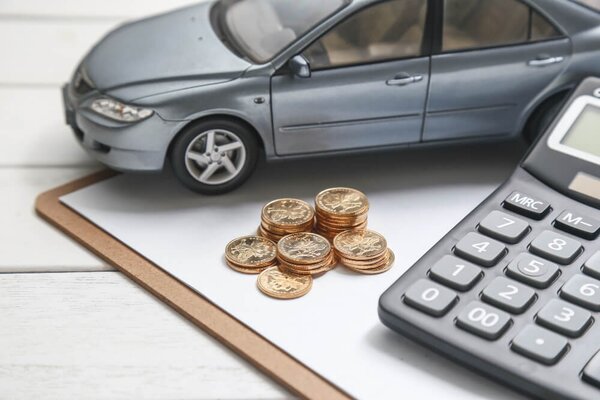Let’s Break This Down Together…
Selling a few things online or at a car boot sale might feel like nothing more than a bit of extra pocket money but HMRC may see it differently.
From the “badges of trade” to the £1,000 Trading Allowance, there are clear rules about when casual selling tips over into taxable business activity.
Get it wrong, and you could face unexpected tax bills or even penalties. But don’t worry, this guide explains exactly how HMRC decides if your side hustle counts as a business, what records to keep, and when you’ll need to register, so you can stay compliant and keep more of your profits.
Many Brits sell items online or at car boot sales without thinking about tax implications. But HMRC has specific criteria to determine if your casual selling counts as a business activity.
Getting this wrong could mean unexpected tax bills or even penalties. Understanding when you've crossed from clearing out unwanted items to running a taxable business is crucial.
Pie tax, the UK's first personal tax app, makes tracking your casual selling simple with automatic sorting of business vs personal sales. Or if you're just here to get to grips with it all, let's break it down!

When Does HMRC Consider Your Casual Selling a Business?
The key difference between tax-free casual selling and taxable business activity lies in HMRC’s “badges of trade”. These are criteria they use to determine if you’re trading.
Selling your old clothes or unwanted household items occasionally typically doesn’t count as business activity. If you are selling occasionally, HMRC generally considers this a hobby rather than a business.
However, if you’re regularly buying items specifically to sell them for profit, that’s likely considered trading. The intention to make a profit is a major red flag for HMRC, especially if you are regularly selling.
Frequency matters too, a one-off car boot sale is different from weekly online selling. The more regular your selling activity, the more likely HMRC will view it as a business. If your activity is classed as a business, you may need to declare income to HMRC.
The Nine "Badges of Trade" HMRC Looks For
HMRC uses these nine factors to decide if you’re running a business:
- Profit motive: Are you selling primarily to make money? This suggests trading.
- Frequency: Regular, repeated transactions point toward business activity rather than occasional selling.
- Nature of items: Selling things you wouldn’t personally use or enjoy suggests business intent.
- Modifications: If you improve or change items before selling, that indicates trading.
- Sales method: Using commercial platforms to sell goods or marketing your items professionally looks like a business.
- Source of goods: Buying items specifically to sell them on is strong evidence of trading.
- Time between purchase and sale: Quick turnarounds suggest you bought with the intention to sell.
- Financing: If you’ve borrowed money to buy items for resale, that’s business-like behaviour.
- Connection to existing work: If your selling relates to your current job, it strengthens the case for trading.
No single factor determines your status – HMRC looks at the overall picture of your selling activities.

The £1,000 Trading Allowance: What You Need to Know
If you’re making extra income by selling goods or providing services online, whether it’s through Facebook Marketplace, eBay, your own website, or any other online platform, the £1,000 trading allowance could be a game-changer for your tax obligations.
This allowance lets individuals earn up to £1,000 in trading income each tax year without needing to pay income tax or even declare it to HMRC. It’s designed to make life easier for casual sellers, hobbyists, and those testing the waters with a side hustle.
To qualify for the £1,000 trading allowance, you must be an individual (not a limited company), and your income must come from selling goods, reselling items, or providing services online.
This includes everything from selling handmade goods and unwanted personal items to offering services online or running a small reselling operation. The allowance applies per tax year, which runs from 6 April to 5 April, so it’s important to keep accurate records of your total income and any business activities during this period.
If your total income from selling goods or services stays at or below £1,000 in a tax year, you don’t need to pay tax on that income or file a self assessment tax return for it.
However, if your trading income goes over the £1,000 threshold, you’ll need to declare all your income on a self assessment tax return, pay income tax on your profits, and possibly pay national insurance contributions depending on your total income and business activities.
This is why keeping detailed records, such as receipts, invoices, and bank statements, is essential for all casual sellers, even if you think you’ll stay under the allowance.
It’s also important to distinguish between personal sales and trading income. Selling personal items or unwanted personal possessions, like second-hand clothes or household goods, is usually not taxable and doesn’t count towards the trading allowance.
But if you’re regularly buying goods to resell, making handmade goods for sale, or providing services online, that income is considered trading income and counts towards your £1,000 allowance.
If you exceed the £1,000 trading allowance, you can deduct allowable business expenses, such as postage, packaging, platform fees, and marketing costs, from your gross income to calculate your taxable profits.
Using accounting software can help you keep accurate records and ensure you’re claiming all allowable expenses. In some cases, you may also need to consider other tax implications, such as capital gains tax if you sell valuable items, or value added tax (VAT) if your total sales are high enough.
To ensure compliance with tax rules and avoid penalties, always keep detailed records of your income and expenses, and seek professional advice if you’re unsure about your tax obligations.
The £1,000 trading allowance is a valuable relief for casual sellers and side hustlers, but understanding the rules and keeping accurate records is key to staying on the right side of HMRC.
Whether you’re a casual seller or a sole trader, taking the time to understand your tax obligations will help you minimize your tax liability and avoid any nasty surprises at the end of the tax year.

When You Need to Register and Pay Tax
If your trading income is under £1,000 in a tax year, you might be covered by the Trading Allowance. This means you don’t need to report this income or pay tax on it.
For income above £1,000, you’ll need to register for Self Assessment and file tax returns. For tax purposes, you are considered self employed, even if you have another job. Income from self employment must be reported to HMRC as part of your tax obligations. You must register by 5 October after the tax year in which you started trading.
If you’re already employed, you’ll pay Income Tax on your trading profits at your normal rate. Your Personal Allowance applies to your combined income. Only your taxable income is subject to tax, so it’s important to calculate this correctly.
For substantial selling activities, you might need to consider registering for VAT. This applies if your turnover exceeds £90,000 in a 12-month period. Exceeding the VAT threshold means you will be paying tax on your sales.
You may need to pay Class 4 National Insurance contributions. This depends on how much profit you make from your selling activities. Failing to pay what you owe can result in penalties and interest for unpaid tax.
Common Casual Selling Scenarios and Their Tax Status
Likely not taxable:
- Selling unwanted clothes and household items from your own home
- Occasional car boot sales of personal possessions
- Selling items you’ve inherited or been given (though Capital Gains Tax might apply)
- One-off sales of valuable items like jewellery or antiques
Likely taxable as business income:
- Regularly buying items in bulk to split and sell individually
- Purchasing items from charity shops specifically to sell online at a profit
- Making crafts or artwork consistently to sell at markets or online
- Buying and selling collectibles as a regular activity
- Earning side hustle income from regular selling activities, such as running an online shop or frequently selling handmade goods.
When determining your tax status, remember to consider all your income sources, including side hustles, rental income, and investments.
Remember, the distinction isn’t always clear-cut. If you’re unsure, it’s better to keep records and seek advice. Online sellers should be especially careful to ensure they are meeting all tax and record-keeping requirements.

Digital and Online Selling: Special Considerations
Online marketplaces like eBay, Etsy, Vinted and Depop are increasingly sharing seller data with HMRC. These online platforms facilitate a wide range of income-generating activities, making it easier for HMRC to identify undeclared business activity.
The rise of these platforms has made casual selling more accessible. Many individuals now engage in online sales, which can blur the line between hobby and business activity.
Social media selling through Facebook Marketplace or Instagram may feel informal. However, HMRC applies the same rules regardless of where you sell.
Digital products like printable art, templates or e-books follow the same principles. Regular sales for profit will likely count as business income.
I once helped a friend who sold handmade cards “just for fun” until she realised she was making £300 monthly. She hadn’t considered it a business until HMRC contacted her about undeclared income. When HMRC requests information, it’s important to be able to report details of your income and transactions accurately.
If you’re selling internationally, additional tax considerations may apply. This includes potential VAT implications for sales to EU customers.
Record-Keeping Requirements for Casual Sellers
If there’s any chance your selling might be considered trading, keeping good records is essential. This includes receipts for items you’ve purchased to sell.
You should also keep evidence of original purchase prices for personal items you’re selling. Records of all selling costs like packaging, postage and platform fees are important too.
Tracking dates of purchases and sales will help establish your pattern of activity. Some online platforms report your income by calendar year (January 1 to December 31), which may differ from the tax year, so it’s important to track the correct dates for accurate reporting. A simple spreadsheet recording all transactions is usually sufficient.
Good records will help you complete your tax return accurately if needed. They also provide evidence if HMRC ever questions your selling activities.
Even if you think your selling is casual, keeping basic records is wise. If your activities grow and cross into business territory, you’ll be prepared.
Final Thoughts
Understanding whether HMRC considers your casual selling a business isn't always black and white. The badges of trade give you a framework to assess your situation.
If you're simply selling personal items occasionally without a profit motive, you're generally in the clear. When you start buying goods to resell or making regular sales for profit, tax obligations typically kick in.
The key is being honest about your intentions. Are you clearing out unwanted items, or actively trying to make money? Your answer likely aligns with how HMRC would view your activities.
When in doubt, keep good records and consider getting professional advice. This is especially important if your selling is becoming more frequent or profitable.
Pie tax: Simplifying Casual Selling Tax Status
Working out if your side hustle counts as a business doesn’t need to be stressful or confusing. Pie tax tracks your selling activities in real-time, highlighting when you might be crossing into business territory.
Our app helps separate personal sales from business transactions. This makes it easy to see when you might need to register for Self Assessment.
We guide you on which expenses you can claim against your selling income.
Explore the Pie tax app if you’d like to see how it works.











